Xbox backward compatibility has changed my expectations for game consoles
Microsoft's focus on backward compatibility has locked me into the Xbox ecosystem in a way I didn't expect.
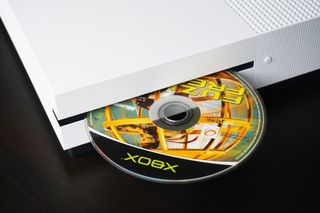
One of my all-time favorite Xbox One moments was Microsoft gaming lead Phil Spencer's on-stage reveal of Xbox backward compatibility, bringing hundreds of classic Xbox 360 and (more recently) OG Xbox games to the Xbox One era.
Through technical wizardry and doubtless hundreds of hours of hard work navigating licensing issues, Microsoft's Xbox backward compatibility team has delivered over 500 million hours worth of gameplay to Xbox One users as of a year ago, and that figure is likely far, far higher now. Heavy hitters like Red Dead Redemption, various Call of Duty titles, and classic Xbox exclusives like Crackdown have since hit the program. Some have even gotten 4K visuals on the Xbox One X, such as Fallout 3, more closely matching their PC counterparts.
Some q’s today on back compat use. Roughly 50% of xbox one owners have played, over 508 million hrs of gaming enjoyed. #pastpresentfutureSome q’s today on back compat use. Roughly 50% of xbox one owners have played, over 508 million hrs of gaming enjoyed. #pastpresentfuture— Mike Nichols (@m1kenichols) June 7, 2017June 7, 2017
Xbox backward compatibility (often referred to as back compat) has exceeded expectations on all fronts, especially on my part. Back compat has made such an impression on me, in fact, that it has affected the way I see both Nintendo and Sony, whose consoles offer limited, if any, backward compatibility, despite having a far, far bigger pool of classic games to draw on.
A complete ecosystem
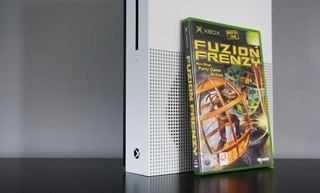
What Xbox back compat creates, for me, is the sense of a complete digital ecosystem. And perhaps more crucially, forwards compatibility. Microsoft has essentially committed itself to future generations of Xbox consoles that feature backward compatibility for older titles. While we won't know for certain in the short term if all Xbox One, and Xbox backward compatible games will be playable on the next-gen rumoured Xbox "Scarlett," I've been heavily given hints from those in the know that this will be the case. If it pans out, that's awesome.
The idea that my game library should travel with me has gradually become a bit of a given.
In an age where Microsoft and others are exploring Netflix-like cloud streaming for our digital game libraries to any device, the idea that my game library should travel with me has gradually become a bit of a given, for me. I suspect this is also true for dedicated PC gamers as well, where you can fire up 1980s MS DOS games on a modern Windows 10 PC without any issues. It's this "ultimate" backward compatibility on Windows that inspired Xbox head Phil Spencer to push for it on Xbox One as well, as covered in this excellent Gamasutra piece.
"I grew up as a PC gamer, and the thing I love about the PC ecosystem is I can still go boot up Age of Empires 2 and I can go play that game. It's funny, I was looking at the World Video Game Hall of Fame, there's like Solitaire and Donkey Kong, but console has this construct that actually makes it hard to go back and play some of those old console games. Because the format is so tied to the hardware itself."
As someone who plays casually on PC, it's easy to take for granted how Windows has this extensible decades-long backlog of software that by and large just works across generations. And while it has held Windows back in some ways, it also remains the platform's biggest strength.
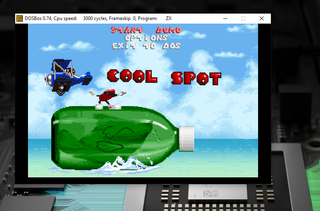
Xbox, like Windows, now feels like a continuous ecosystem that could (and hopefully will) continue to span hardware generations. There may come a time when the Xbox One can't run downgraded versions of the latest 4K/8K 60/120 FPS games on future consoles, but those future consoles should be able to access the deep history of previous generations, ensuring that the content you have purchased travel with you. Microsoft's primary console competitors don't seem to have made the same commitment.
Get the Windows Central Newsletter
All the latest news, reviews, and guides for Windows and Xbox diehards.
Back compat expectations
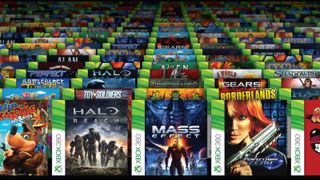
The fact we have some elements of PC-like backward compatibility on Xbox One now is truly sublime. However, I've begun to take it for granted. Now that I'm financially in a position to consider adding other video game consoles to my gaming life to go with my Xbox One X and my PC, I can't help but feel a twinge of "ugh" over the fact PlayStation and Nintendo aren't leveraging their back catalogs more. This is perhaps even more egregious on Nintendo's part, given how they have explored emulation on previous devices.
The PlayStation 4 is by far powerful enough to emulate PlayStation 2 titles, and Sony has proven it with a fairly decent list of a few dozen titles. There are few games in that list that I'd call true classics, though, and the PS3's list of downloadable backward compatible PS2 games is far, far larger, with over three hundred titles. The earliest models of the PS3 even came with full PS2 backward compatibility, but the feature was stripped out with new model revisions. Sony has also done a great job porting some of its classics, such as The Last Of Us, to the PS4, but Microsoft's method of essentially emulating the full Xbox 360 catalog pending developer approval seems far more effective.
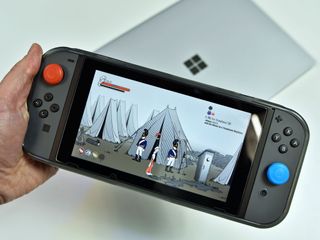
You would think the Nintendo Switch would be the perfect console for backwards compatibility, especially given the tight ownership Nintendo maintains over its core franchises. Nintendo's previous console, and its line of DS handhelds, enjoyed a feature known as the virtual console, which brought insane amounts of classic games to those systems. The Nintendo Switch however, has, well, pretty much nothing. It's pretty depressing considering how small the portable console's library is (and how much of it I already own across Xbox and PC).
In an interview with IGN, Nintendo stated that its new subscription service will be its successor to the virtual console. Sadly, you won't be able to buy to own Nintendo's legacy content on the Nintendo Switch. Sony is doing something similar with its PlayStation Now game streaming subscription service, which features dozens of PlayStation 3 and PlayStation 2 titles, far more so than you can purchase outright on its modern systems.
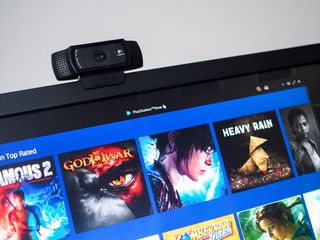
Both of these features are a huge departure from what Microsoft is doing, and frankly, just not what I want. Not only does Microsoft sell Xbox back compat games digitally, you can simply use the discs you already own, buried in a closet. You could argue it will make far more cash for Nintendo and Sony to go down the subscription route, but as someone who likes to buy to own, that simply doesn't interest me.
Back compat yourself on the back, Microsoft
Backward compatibility doesn't get the appreciation it deserves, despite being utilized by millions on a daily basis. These are games past their prime, which future generations likely won't be interested in, but Microsoft is essentially preserving history by granting new life to those ancient disc collections you may have. If you purchased it on Xbox 360, you can play it on Xbox One, simple as. And sure, maybe Microsoft will suddenly pivot and offer backward compatibility as a premium feature of its cloud streaming service, but, I think it's safe to say that's unlikely at this point.
I spent my youth playing classic games on PlayStation and Nintendo consoles of yore. While I can appreciate the licensing issues Sony would have to deal with in regards to PS1 and PS2 games, Nintendo simply doesn't have that problem with its first-party lineup. When I look at the Nintendo Switch in particular saying they'll "maybe" give me "some" of its legacy content on a monthly subscription basis, I can't help but roll my eyes and close my wallet. I think I'll stick with Xbox and PC for the foreseeable.

Jez Corden is a Managing Editor at Windows Central, focusing primarily on all things Xbox and gaming. Jez is known for breaking exclusive news and analysis as relates to the Microsoft ecosystem while being powered by tea. Follow on Twitter @JezCorden and listen to his XB2 Podcast, all about, you guessed it, Xbox!
